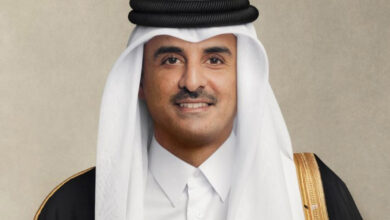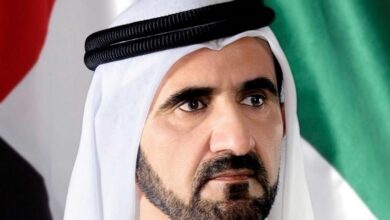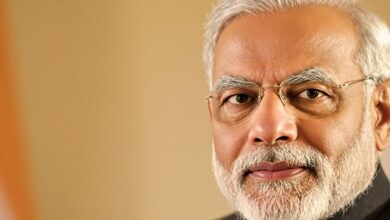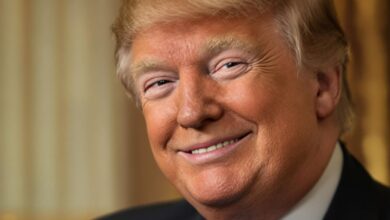Xi Jinping Net Worth: Unveiling the Wealth of China’s Leader in 2025
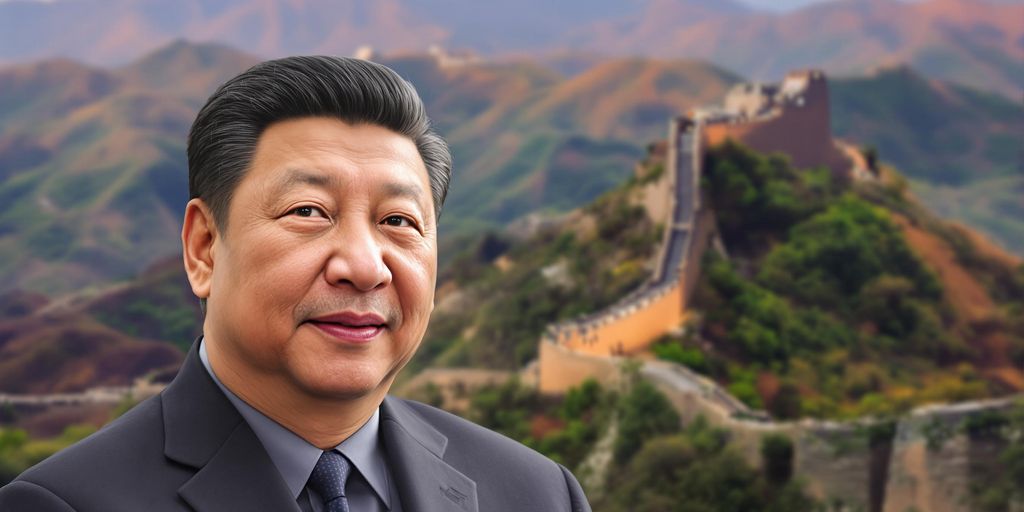
Xi Jinping, the President of China, is a figure of immense power and influence, not just politically but financially as well. His wealth, estimated to be around $1.2 billion, is a subject of intrigue and speculation. Despite his high-profile position, details about his financial status are shrouded in secrecy, making it a complex puzzle to piece together. This article aims to shed light on the various facets of Xi Jinping’s wealth, exploring real estate holdings, business ventures, and the role of his family in shaping his financial profile.
Key Takeaways
- Xi Jinping’s wealth is estimated at $1.2 billion, but exact figures are unknown due to lack of transparency.
- His family’s investments in real estate and stakes in Chinese companies are significant contributors to his wealth.
- The Chinese government’s secrecy around the financial profiles of its leaders adds to the mystery.
- Xi’s wealth not only supports his political power but also impacts China’s economic strategies globally.
- Comparisons with other world leaders are difficult due to different economic systems and transparency levels.
The Mystery Behind Xi Jinping’s Wealth
How Xi Jinping’s Wealth is Estimated
Alright, so here’s the thing: figuring out Xi Jinping’s wealth is like trying to solve a puzzle with half the pieces missing. Why? Because China’s not exactly known for being super open about their leaders’ finances. But, there are some clever folks out there who try to piece it all together. They look at family investments, real estate, and any business ties that could hint at his financial status. It’s a bit like detective work, really. They take all these little bits of info and try to come up with an estimate. But let’s be real, it’s mostly educated guesses and a lot of mystery.
The Role of Family Investments
Now, when it comes to Xi’s wealth, his family plays a pretty big part. We’re talking about investments in all sorts of businesses, from tech to real estate. It’s like having a financial safety net, and it definitely adds to the overall picture of his wealth. Some reports even suggest that his relatives have stakes in major companies, which isn’t too surprising given the influence they hold. It’s kind of like a family business, but on a massive scale.
Challenges in Uncovering Financial Details
Trying to uncover the full details of Xi Jinping’s finances is like trying to find a needle in a haystack. The Chinese government keeps a tight lid on this kind of information. It’s all about maintaining a certain image and avoiding any unwanted scrutiny. Plus, the way wealth is managed among China’s elite is pretty complex, with layers of ownership and indirect holdings. So, even if you manage to get a glimpse of the financial picture, it’s hard to tell what’s really going on behind the scenes. It’s a real challenge, and that’s why there’s so much speculation surrounding his wealth.
Xi Jinping’s Real Estate Empire

Properties Owned by Xi’s Family
Xi Jinping’s family is said to have a pretty impressive real estate portfolio. We’re talking about properties not just in China but also abroad. These aren’t your run-of-the-mill apartments either; they’re high-value assets. The ownership of these properties is often hidden behind complex structures, making it tough to pin them directly to Xi or his immediate family. This kind of setup is pretty common among Chinese elites, and it plays a big role in boosting their wealth. So, if you’re curious about where the “Xi Jinping house” might be, you’re not alone. The secrecy around these properties only adds to the mystery.
Impact on His Net Worth
Real estate is a major chunk of Xi’s financial picture. His family’s holdings in this sector significantly pump up his net worth. The value of these properties can fluctuate with market trends, but generally, real estate is a pretty solid investment. Analysts even predict that China’s property prices will stabilize by late 2025, with an expected average increase of 2% in the following two years. So, it’s safe to say that Xi’s wealth could see a nice little bump thanks to these assets. While it’s hard to put an exact number on his net worth, real estate certainly plays a key role.
Real Estate as a Wealth Strategy
For Xi Jinping and his family, real estate isn’t just about owning property; it’s a strategic move. By holding valuable assets in both domestic and international markets, they ensure a diversified portfolio that can weather economic shifts. This approach not only secures financial stability but also aligns with China’s broader economic strategies. Real estate serves as a reliable way to grow and protect wealth, and for someone in Xi’s position, it’s a smart play. So, while we might not know all the details, it’s clear that real estate is a cornerstone of Xi Jinping’s financial empire.
Business Ventures and Corporate Ties
Xi’s Influence in Chinese Companies
Xi Jinping’s influence stretches far and wide across China’s business landscape. His role as a leader has allowed him to shape policies that impact state-owned enterprises and private firms alike. These enterprises, in turn, play a significant role in the country’s economic strategies. It’s no secret that having the right connections in China can open doors, and Xi’s position has certainly provided him and his family with a network of influential allies. This influence is not just about wielding power but also about ensuring that his vision for China’s economic future is realized. In a country where politics and business are deeply intertwined, Xi’s sway over corporate decisions can be significant.
Family’s Stake in Major Corporations
The Jinping family’s involvement in major corporations is a topic that often sparks curiosity and speculation. It’s been reported that family members have stakes in several large enterprises, which can impact Xi’s personal wealth. While details are often shrouded in secrecy, there’s enough evidence to suggest that these business interests are substantial. The intertwining of family and business is not unusual in China, where familial connections can be as crucial as business acumen. This dynamic raises questions about how much of Xi’s wealth is directly tied to these corporate interests and what role his family plays in managing these investments.
How Business Interests Boost Wealth
Business interests have undeniably played a role in boosting Xi Jinping’s wealth. The strategic placement of family members in key positions within influential companies has likely provided financial benefits. These business ventures are not just about generating income but also about solidifying power and influence both domestically and internationally. The success of these ventures can enhance Xi’s standing on the global stage, as they reflect China’s growing economic prowess. However, the lack of transparency around these dealings makes it challenging to fully understand the extent of their impact on Xi’s financial profile. Despite the opacity, it’s clear that business interests are a significant component of Xi’s wealth strategy.
The Secretive Nature of Xi Jinping’s Finances
Why Transparency is Limited
When it comes to Xi Jinping’s finances, it’s like trying to see through a fog. The Chinese political system is notoriously tight-lipped, especially about the personal lives of its leaders. This isn’t just about keeping things private; it’s about maintaining control. The Chinese government is all about crafting a certain image of its leaders, and letting too much personal info out could mess with that. They want to avoid any scandal or gossip that might make people question the Party’s authority. So, they keep a lid on things pretty tight.
Government’s Role in Secrecy
The government plays a huge part in keeping Xi’s financial details under wraps. It’s not just about protecting him as an individual, but safeguarding the Party’s image as a whole. In China, the line between personal and political is blurry. Xi’s wealth isn’t just his own business; it’s tied to his role as a leader. The government uses its power to control the narrative, ensuring that any financial information that does get out aligns with the Party’s goals. This secrecy isn’t just a quirk of Xi’s leadership; it’s a long-standing tradition in China’s governance.
Public Perception of His Wealth
Despite the secrecy, people are naturally curious about how much money Xi has. This curiosity isn’t just about numbers; it’s about understanding how wealth and power mix in China. Some folks see Xi as a symbol of the Party’s success, while others might wonder if his wealth is a bit too much for a “servant of the people.” The lack of transparency fuels speculation and rumors, making it hard for the public to know what’s real and what isn’t. This mystery adds to the intrigue, but it also creates a gap between the leaders and the people they govern.
Comparing Xi Jinping’s Wealth to Other Leaders
How Xi Stacks Up Globally
So, how does Xi Jinping’s wealth compare to other world leaders? Well, it’s a bit tricky to say for sure. Unlike in some countries, the financial details of Chinese leaders aren’t exactly public knowledge. But, Xi Jinping’s estimated net worth is around $1.2 billion, which is quite a chunk of change. This puts him in a unique spot on the global stage, even though it’s likely less than what some other leaders have stashed away. It’s important to remember that China’s economic system is a bit different, and the way wealth is handled there isn’t the same as in more open economies.
Wealth Disparities Among Leaders
There’s a big gap when you start comparing the wealth of leaders worldwide. Some leaders come from countries where personal wealth isn’t as intertwined with political power. In contrast, in places like China, leaders often have their hands in various economic pies, which can make their financial profiles a bit more robust. Xi’s wealth, while not officially disclosed, is believed to be bolstered by family connections and investments. This isn’t uncommon among political elites, especially in nations with less transparency.
Economic Systems and Wealth
Now, let’s talk about how different economic systems play into this. In China, the blend of political power and economic influence is pretty significant. The way China chooses its leader and the governance system means that wealth is often tied to one’s political clout. This isn’t necessarily the case in more democratic countries, where leaders might have personal wealth but don’t usually have the same level of direct economic influence as part of their official roles. This makes comparing Xi’s wealth to that of leaders from other systems a bit of an apples-to-oranges situation.
In the end, while Xi Jinping’s wealth might not top the charts, it’s deeply rooted in a system where political and economic power are closely linked. This makes his financial standing not just a reflection of personal fortune, but also of the broader dynamics at play in China’s unique blend of governance and economy.
The Political Power of Xi Jinping’s Wealth
Xi Jinping’s wealth isn’t just about money; it’s a huge part of his power game in the Communist Party. Since he became president in 2013, he’s been a major player, not just because of his title but because of the financial muscle that comes with it. People often wonder, “How long has Xi Jinping been president?” and the answer is over a decade now. His wealth, though not officially disclosed, is believed to be tied to his family’s investments, which gives him an edge over others in the political arena. These financial resources enable Xi to reward loyalty and maintain tight control over the party’s direction.
On the world stage, Xi’s financial power translates into significant economic influence. China, under his leadership, has seen massive economic growth, and his personal wealth is often seen as a reflection of China’s global ambitions. This raises the question, “Who is more powerful, PM or president in China?” In China’s unique political structure, the president, especially someone like Xi, wields immense power, often overshadowing other roles like the Prime Minister. His wealth allows him to make strategic economic decisions that can sway international markets and forge alliances.
Xi’s wealth isn’t just about living lavishly; it’s a tool for reinforcing his authority both at home and abroad. Domestically, it helps him secure his position within the Communist Party, ensuring that his policies and visions are implemented without much opposition. Internationally, his financial clout bolsters China’s position as a superpower, allowing him to negotiate from a place of strength. As he continues to lead, his wealth remains a key factor in his ability to maintain and expand his power.
Xi Jinping’s Financial Future

Predictions for 2025
Xi Jinping’s financial future is a hot topic, especially when considering the unpredictable nature of global politics and economics. By 2025, Xi’s wealth could take several paths, influenced by a mix of strategic decisions and external factors. His role as the leader of China, combined with his family’s investments, suggests that his financial standing might continue to grow.
It’s fascinating how Xi Jinping, despite the secrecy surrounding his finances, manages to maintain a robust financial profile. Real estate investments and stakes in various companies are likely to play a significant role in his net worth. As China continues to expand its influence on the global stage, Xi’s financial portfolio could benefit from these broader economic strategies.
Factors Influencing Future Wealth
Several factors could impact Xi Jinping’s wealth in the coming years. For starters, the stability and growth of China’s economy will be crucial. If China’s economy thrives, it could create more opportunities for wealth accumulation through legal means. Additionally, the financial security of his family, who hold stakes in various industries, will also be pivotal.
Moreover, Xi’s influence within the Communist Party and his control over state-owned enterprises might open up new avenues for financial gain. However, the lack of transparency surrounding his finances makes it difficult to predict the exact trajectory of his wealth.
Potential Growth Areas
Looking ahead, real estate and corporate interests appear to be promising areas for growth in Xi’s financial future. His family’s extensive investments in these sectors are likely to contribute significantly to his overall wealth. Furthermore, as China continues to assert its dominance in international markets, Xi’s financial strategies may align with the country’s broader economic goals.
While the exact figures of Xi Jinping’s net worth remain elusive, it’s clear that his financial future is intertwined with China’s economic ambitions. As the world watches closely, the question remains: What is Xi Jinping’s China dream? Only time will tell how his wealth will evolve and what impact it will have on the global stage.
The Global Impact of Xi Jinping’s Wealth
Effects on International Markets
Xi Jinping’s wealth isn’t just a domestic affair; it ripples across the globe. As the leader of the world’s second-largest economy, his financial maneuvers can shake up international markets. His decisions influence everything from stock prices to global trade dynamics. People often wonder, “What has Xi Jinping done for China?” Well, his economic strategies don’t just impact China; they have a domino effect worldwide. Whether it’s through fiscal policies or strategic investments, his wealth plays a part in shaping the economic landscape beyond China’s borders.
China’s Economic Strategies
Under Xi’s leadership, China’s economic strategies have shifted dramatically. He’s been the mastermind behind numerous initiatives aimed at boosting China’s global economic presence. His wealth, intertwined with his political power, allows for bold moves in the economic arena. These strategies are not just about making China richer; they’re about enhancing its influence on the world stage. From infrastructure projects in Africa to partnerships in Europe, Xi’s economic plans are far-reaching and meticulously crafted to expand China’s reach.
Geopolitical Implications
Xi Jinping’s wealth also carries significant geopolitical implications. His financial clout gives him leverage in international diplomacy, allowing China to negotiate from a position of strength. This wealth-backed influence helps in forging alliances and shaping geopolitical narratives. By wielding his financial power, Xi can push China’s agenda in global forums, impacting everything from environmental policies to security alliances. The intertwining of wealth and politics in Xi’s case is a testament to the complex role financial resources play in global geopolitics. In essence, his wealth is not just a personal asset but a tool for advancing China’s interests on the world stage.
Understanding the Sources of Xi Jinping’s Wealth

Family Wealth and Connections
Xi Jinping’s wealth is a topic that’s as intriguing as it is elusive. At the heart of it lies his family’s considerable fortune. His family is no stranger to the business world, with stakes in various industries, from tech to real estate. These connections not only bolster their bank accounts but also extend Xi’s influence. It’s like having a financial safety net woven with political ties. His family’s wealth isn’t just about money; it’s about power and the reach that comes with it. This blend of personal and political capital makes it hard to draw a line between Xi’s personal wealth and his political clout.
Real Estate and Corporate Interests
Real estate plays a huge role in Xi’s financial picture. His family’s portfolio reportedly includes high-value properties both in China and overseas. These aren’t just homes; they’re strategic assets that enhance their wealth and influence. Besides real estate, corporate interests also feature prominently. Through family members or trusted associates, investments in major companies add another layer to Xi’s financial empire. These business ventures are more than just profit-driven; they’re part of a broader strategy to maintain and expand influence, both domestically and internationally.
Indirect Sources of Income
When it comes to indirect sources of income, the waters get murkier. Think of it like an intricate web of investments and interests that aren’t always easy to trace. Some reports suggest that Xi’s financial interests are often managed through proxies or layered ownership structures, making it tough to pinpoint exact figures. This level of secrecy isn’t unusual in the upper echelons of Chinese politics, where maintaining a low profile can be as important as the wealth itself. It’s a game of chess, where every move is calculated to keep the real financial picture just out of reach.
Xi Jinping’s Wealth and Public Image
Crafting a Humble Persona
Xi Jinping, with an estimated net worth that could be over $1 billion, has managed to maintain a public image that leans more towards humility than extravagance. Despite the whispers about his family’s vast investments and properties, Xi has crafted a persona that aligns with the ideals of the Communist Party. This image is crucial in a country where the perception of wealth can be politically sensitive. Even as he stands at the helm of a rapidly growing economy, Xi Jinping’s public appearances and the controlled media narrative focus more on his dedication to the nation than his personal riches.
Media’s Role in Shaping Perception
In China, the media plays a pivotal role in shaping how leaders are viewed by the public. For Xi, this means maintaining a delicate balance between his powerful position and his personal wealth. The state-controlled media often highlights his achievements and policies rather than focusing on his financial status. This strategy ensures that the public sees Xi as a leader committed to the country’s progress rather than a wealthy elite. The media’s portrayal helps to obscure details about his net worth and redirects attention to his political and economic contributions, such as China’s GDP projections.
Balancing Wealth and Public Service
Xi Jinping’s wealth, intertwined with his political career, presents a complex picture. While his family’s financial interests, including those of his daughter, who graduated from Harvard, are well-documented, Xi himself rarely discusses personal finances publicly. This silence contributes to the mystery surrounding his wealth, leaving many to speculate about the true extent of his financial empire. Yet, despite this, Xi continues to emphasize his role as a servant of the people, focusing on governance and economic policies. His ability to balance personal wealth with public service is a testament to his political acumen and the influence he wields, not just in China but globally. As Xi Jinping’s influence grows, so does the intrigue surrounding his personal and financial life, including questions like “What languages does Xi speak?” or “What is Xi Jinping’s height?” which add to his enigmatic persona.
The Role of Xi Jinping’s Family in His Financial Profile
Family Members’ Business Involvement
Xi Jinping’s family plays a big role in his financial profile, with their business ventures often reflecting on him. His relatives are known to have stakes in various businesses, from tech firms to real estate. This isn’t just about making money; it’s about influence too. These family connections can sometimes blur the lines between personal wealth and political power, making it tricky to pin down exactly where one ends and the other begins.
Influence of Family Ties
The influence of Xi’s family ties is significant. It’s not just about the money they bring in, but also the power and connections they wield. This influence extends beyond just financial gain, impacting political dynamics both within China and abroad. The family’s involvement in various sectors means they have a hand in shaping not just their own wealth, but potentially the economic strategies of the country.
How Family Wealth is Managed
Managing such a vast family fortune isn’t straightforward. The wealth is often held through complex structures, making it hard to trace directly to Xi or his immediate family. This complexity is partly why it’s tough to get a clear picture of Xi’s net worth. However, it’s estimated to exceed $1 billion, suggesting that financing his daughter’s education at Harvard wouldn’t be a significant challenge, even with his reported annual salary of $24,000 Xi Jinping’s estimated net worth. The management of this wealth involves strategic investments and careful planning, ensuring that the family’s financial influence remains strong and secure.
Wrapping It Up: Xi Jinping’s Wealth
So, there you have it, folks. Xi Jinping’s wealth is like a puzzle with a few missing pieces. We know he’s got a hefty net worth, thanks to his role as China’s top dog and some savvy family investments. But the exact numbers? Still a bit of a mystery. It’s clear, though, that his financial clout isn’t just about the money—it’s about power and influence, both at home and on the world stage. As China continues to grow and flex its muscles globally, Xi’s wealth will likely keep us guessing. Who knows what the future holds? One thing’s for sure, though: Xi Jinping is a name that’s not going away anytime soon.
